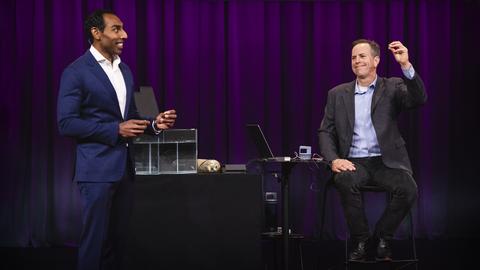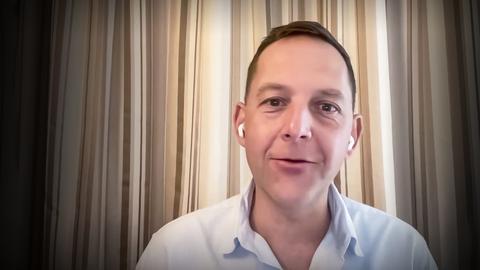Reading view
ugly love machine
this post is inspired by a recent comment by torokunai linking current thinking about Machine Learning to Kurt Vonnegut's first published novel. the FPP quote is from an unpublished earlier work (Vonnegut is one of my favorite writers, having discovered Sirens of Titan at a young age). Westworld [fanfare] came to mind, thinking about all of this. happy to see that was by design: "Westworld co-producer Jonathan Nolan has credited Vonnegut with inspiring the show's player piano, referring to it as a touchstone image of the show's first season." [the conversation; playlist, denofgeek] Nine Inch Nails (inspiration for the post title [wiki]) when the simulacra starts to fray at the edges, things begin to rock [season 3, content note: violence] Common People, originally (bonus: cover by Star Trek's Captain Kirk) Westworld previously on the tech [illanoise.edu]
"All poetry starts with geography"
Organized by Poet, Poems by title, or Poems by first line, or search for a location. [Unfortunately, the full text of the poems is usually not available right there on the site; most can be found at the Poetry Foundation or Poets.org] Here are the poems mention above: Lying in a Hammock at William Duffy's Farm in Pine Island, Minnesota Indian River Kubla Khan A Bird, came down the walk MANNAHATTA
5000 picks/second
"Wow, pinecone!" It's an apple.
I won't mince words: it's baaaaad, y'all. But it can be enjoyable to watch bad things, if you're of a certain diseased frame of mind. I have had that illness for a long time; maybe some of you are sufferers too. Each of the two long videos has five episodes. Things to look/listen for in the first episode alone: Disturbing character design throughout "What a bad lucky day! You will be accused by me." Unexpected cameos by Zelda music Unnecessary transitions in a shot, to the same shot Four Chinese sentences that get translated into "Ugh..." The ice cream cone that becomes a banana in an edit The door step that's clearly too tall for any character to climb "Bad brother, compensate us..." "Mum, he must compensate us." Endless rabbit whining Rabbits here have tapering tails instead of cottontails Baby rabbits suddenly spinning around the Fox elder's head Sheriff Volcano-head "Village head, my grandpa has said the misunderstanding is the devil! Or you'll be the devil!" "I have heard that impulse is the devil." Naonao sleeps at night resting stiffly on his bed in his clothes with his baseball cap over his face "Get up everybody...! Do cleaning...!"
The woman who wrote a letter to King George V about schools
In 1926, a Yuin woman from Moruya on the NSW south coast sat down to pen a letter to the King. Jane Duren was writing to King George V asking for her grandchildren to be allowed to attend Batemans Bay Public School. That letter, signed and stamped, would be received by Buckingham Palace, endorsed by the Australian Governor-General, and end up as an important artefact of cultural change in the state's archives. "I beg to state that it is months and months since those children were at school and it is a shame to see them going about without education," she wrote. "Your Majesty, we have compulsory education. Why are they not compelled to attend school?" Up until the 1970s, an Indigenous student could be removed from a school if a non-Indigenous parent complained. Ms Duren thought that ridiculous — and she had written as much in previous letters — to the Minister of Education, the Child Welfare Department, her local Member of Parliament, and the Aborigines Protection Board, but with no outcome. This letter, however, would have a different fate. Buckingham Palace forwarded the letter to the Governor-General who endorsed the letter and sent it to the NSW state government, which in turn passed it onto the Aborigines Protection Board — about whom Ms Duren was complaining.
The Oklahoma Supreme Court Just Rejected the Nation’s First Religious Public Charter School
In a win for the separation of church and state, the Oklahoma Supreme Court ruled that Oklahoma’s approval of the nation’s first religious public charter school violates the state constitution and charter-school statute, as well as the U.S. Constitution. The decision affirms what we already knew: A religious school can’t be a public school, and a public school can’t be religious.
Last year, St. Isidore of Seville Catholic Virtual School applied to the Oklahoma Virtual Charter School Board to become a public charter school. The school, which would have been managed by the Archdiocese of Oklahoma City, proclaimed in its application that it would carry out “the evangelizing mission of the [Catholic] Church” by fully embracing its religious teachings and incorporating those teachings “into every aspect of the School.” The school also acknowledged that it would discriminate in admissions, student discipline, and employment, as necessary to satisfy the Catholic Church’s religious doctrine, and that it would not accommodate a student’s disability if doing so would violate the school’s Catholic beliefs.
Despite warnings from the Oklahoma attorney general, education groups, and civil rights organizations that public schools—including charter schools—cannot legally teach a religious curriculum or discriminate against students and employees, the Virtual Charter School Board approved St. Isidore’s application and entered into an agreement allowing the school to begin operating for the upcoming school year. Today, in ordering the state board to rescind its contract with St. Isidore, the Oklahoma Supreme Court sent a pointed message: Our public schools are for education, not evangelizing.
“Our public schools are for education, not evangelizing.”
The court held that charter schools, which are funded by the state, created as government entities, and expressly characterized in state law as “public schools,” are, of course, just that – public schools. As a result, the court explained, a religious public charter school violates not only the Establishment Clause of the First Amendment, but also Oklahoma’s charter school law and constitution, which forbid public schools from imposing religious teachings on students. “Enforcing the St. Isidore contract would create a slippery slope and what the [state constitution’s] framers warned against—the destruction of Oklahomans’ freedom to practice religion without fear of governmental intervention,” the court stated.
The ruling comes in response to a petition filed with the Oklahoma Supreme Court by the Oklahoma attorney general, who sought to rescind the Charter School Board’s contract with St. Isidore. Although some people may be surprised that a Republican attorney general would object to the nation’s first religious public charter school, safeguarding the separation of church and state is not, and never should be, a partisan issue.
That’s why the ACLU, along with Americans United for Separation of Church and State, Education Law Center, and the Freedom From Religion Foundation, filed a friend-of-the-court brief in the case supporting the attorney general. Even before the attorney general filed his petition, we brought suit in Oklahoma state court on behalf of parents, faith leaders, and public-school advocates who don’t want their tax dollars used to fund a religious public school that discriminates against students and staff and promotes religious doctrine.
Church-state separation is a cornerstone of our democracy. It’s critical to preserving the right of every person to decide for themselves—without pressure from the government—which religious beliefs, if any, to hold and practice. It also ensures that the government doesn’t undermine religion either by co-opting it for political purposes or rendering religious institutions dependent on the state to spread their faith. Indeed, the U.S. Supreme Court has repeatedly emphasized that the separation between religion and government is particularly crucial in our public schools, which, by design, freely serve all students equally regardless of religious background or preference.
St. Isidore is, and has always been, free to open as a private religious school that taxpayers would not be forced to support. It is not free, however, to assume the mantle of a public school—including all the associated legal and financial benefits—while flouting the Oklahoma and U.S. Constitutions. The Oklahoma Supreme Court recognized as much, explaining, “What St. Isidore requests from this court is beyond the fair treatment of a private religious institution receiving a generally available benefit…It is about the state’s creation and funding of a new religious institution violating the Establishment Clause.”
What Voters Really Want for Immigration and Public Safety Reform
When it comes to immigration and public safety, Republican and Democratic platforms have become virtually indistinguishable. Both sides are espousing a narrative that calls for harsher policies, more enforcement, and increased incarceration. Candidates have bought into the idea that to win votes, they must lean into “toughness.”
So how did we get here? Extremist candidates currently control the narrative on both issues and are weaponizing Americans’ fears to win support. These extremist candidates paint a picture of communities under siege and insist the only way to keep families safe is by turning people away who seek safety at the border and putting more people behind bars. They label any candidate who disagrees with this approach as “soft,” “weak,” and “unfit” to address the issues facing our communities.
New ACLU polling shows, however, that despite all the fearmongering in American politics, voters want something completely different. Our survey showed that in battleground states, Congressional districts, and across the nation, when it comes to immigration and public safety voters want solutions that address the root causes of both issues – not calls for more punishment. Our research, coupled with recent surveys from other leading organizations, clearly shows taking a page out of the MAGA playbook is a liability – not a winning strategy.
Here’s what you need to know.
Voters’ policy choices are far more effective than the punishment-focused policies candidates propose.
“Tough on crime” and “tough on immigration” policies don’t make us any safer, and instead, only exacerbate many of the underlying issues of both. For instance, inhumane policies that illegally limit who can ask for asylum force vulnerable people to wait in limbo in dangerous conditions for years, leading to further confusion and disorder at the border. Our nation’s overreliance on police and incarceration has disproportionately harmed Black and Brown people, those experiencing addiction and mental health issues, and people who are homeless. It has also perpetuated cycles of harm by saddling people with criminal records that only create additional barriers to success.
Voters understand that more of the same is not the answer, and that it’s past time to tackle the root causes of issues in both areas. Candidates would do well to listen to them, not just to capture votes, but because they’re sound policy solutions.
Leading with humanity and justice is more than good policy – it’s good politics too.
For more than 100 years, the ACLU has consistently fought for policies that advance justice and safeguard our rights. But this work isn’t easy. Even lawmakers who champion of LGBTQ+ rights, protect abortion access, and safeguard democracy can compromise their principles to support harmful immigration and criminal legal policy bills when they believe it’s the only way to win over voters. Here’s the good news: Our research shows that even though voters are concerned about public safety and immigration, they want real solutions that tackle the root causes of both. Conventional political wisdom that assumes when voters are afraid, candidates must lean into toughness, is wrong. Leading with humanity and justice is more than just the right thing to do – it’s politically advantageous.
Voters want fair, humane, and efficient border solutions and a path to citizenship, over cruel, enforcement-only policies.
Recent polling shows that immigration is a top concern for many voters. Yet more than 73 percent of Americans believe that we should not only provide access to the asylum system for people fleeing persecution and violence, but also a road to citizenship for long-term residents and Dreamers.
Rather than extreme partisan politics or cruelty, voters want candidates who champion real solutions. In surveying voters across six congressional battleground districts, 65 percent agreed that the country needs a balanced approach to immigration that both manages the border and provides a path to citizenship for long-term residents, over the idea that it’s either too dangerous or too costly to open up our country to immigrants. Sixty-eight percent of voters in seven key battleground states similarly favor a balanced approach.
Notably, our research shows that when candidates, regardless of party affiliation, adopt a balanced, solutions-focused approach, they outperform their opponents’ fear-based messages. In a national YouGov survey, voters presented with a Republican candidate using a “balanced approach” message against a Democratic candidate’s “tough-on-immigration” message, chose the Republican candidate by 16 points. Similarly, voters presented with a Democratic candidate using a “balanced approached” message against a Republican tough message, chose the balanced approach message by seven points, while the Democratic “tough-on-immigration” approach lost or tied.
https://infogram.com/1p9zvjx13p1enxf716w5lqmj1zu355jl7l3?live
Voters want investments in housing and health, not increased police and incarceration.
Although nationwide crime is at historic lows, voters across the political spectrum believe it’s going up — and not just in big cities, but in their own communities. Despite their concerns, voters overwhelmingly want prevention, not punishment. They believe investing in community-based services is the most effective way to foster safety. Nationally, improving access to mental health care as a public safety solution outperforms putting 100,000 more police on the streets by a staggering 26 points.
In some of the toughest Congressional districts across Arizona, California, New Jersey, and Ohio, 59 percent of voters don’t think we can arrest our way out of homelessness, unemployment, and poverty. Instead, they believe investing in services that will treat the root causes of these problems, like affordable housing and job training, is a more effective solution than relying on punishment and incarceration.
https://infogram.com/1p2j150rj636gdb0e0vg7zmnmnhr6nerzjz?live
Whether it’s a Republican or Democrat espousing a “tough on crime” narrative based on fear, they lose to the candidate offering a response focused on solutions. In two New York battleground congressional districts, both currently held by Republicans, we tested two different frames on crime and public safety against a “tough-on-crime” incumbent. The survey found that the challenger offering solutions like affordable housing, mental health, and addiction treatment performed five points better among all voters. Notably, this candidate won undecided voters by 19 points.
The ACLU is showing candidates there’s no excuse for supporting harmful policies.
With sound proof that voters are eager for real solutions – like those that keep families together, ensure people have access to mental health and addiction treatment, and that invest in solving housing insecurity – there’s no excuse for candidates to fall back on fear.
Our research delivers a clear message for candidates: Voters are hungry for bold, new solutions, not the same old fear-driven tactics. The key to success in 2024’s electoral battlegrounds lies in presenting innovative, solution-focused approaches to immigration and public safety. This research should serve as a wake-up call for candidates who’ve fallen to the idea that to win their elections, they must lean into harsher rhetoric and policies. The opposite is true. Candidates should embrace the electorate’s desire for justice and humanity.
Butt seriously: why you might be pooping wrong
I see damage from over-wiping with rough toilet paper, or rashes or fungal or bacterial irritations caused by overuse of wet wipes. I meet people suffering from hemorrhoids, who are scared when they see unexplained blood in the toilet bowl. I talk to patients who just don't feel sexy because of unwanted hair or irregular pigmentation. Ultimately, one thing seems to be universally true: no one feels happy, healthy or beautiful if their ass isn't happy, healthy and beautiful. So that's what I do – give people their happiness, health and self-confidence back, one butt at a time. And since we spend a considerable amount of our life pooping, it behooves us to understand there is a correct technique for doing it. I call this lesson Pooping 101.
One nation under bareback
What is language attrition?
MGA Entertainment Recalls Miniverse Make It Mini Sets with Unused Liquid Resins Due to Risk of Skin, Eye and Respiratory Irritation and Sensitization; Violation of the Federal Hazardous Substances Act
The recalled Make It Mini sets contain resins that, when liquid, can cause skin, eye, and respiratory irritation or sensitization when inhaled, touched, or ingested by children or adults. The resins contain acrylates (hydroxyethylmethacrylate “HEMA” and isobornyl acrylate “IBOA”) in amounts prohibited in children’s products by the Federal Hazardous Substances Act. After the resins cure, they no longer present this hazard.
The Plagiarism Machine
"Luckily, after going through this process, I also learned that while doing this is profitable to some, the practice relies on a fundamental misunderstanding of what journalism is, what makes it good, and therefore gives me more confidence than ever that a fully automated blog will never be able to replace 404 Media, or other investigative news outlets."
Inmates nurse injured wildlife to health in prison program
How you could see inside your body — with a micro-robot | Alex Luebke, Vivek Kumbhari

game, on
"I shake the system and change it and evolve people"
'He was everywhere and nowhere all at once': The elaborate web of triple shooting victim Arash Missaghi [The Star; ungated] Arash Missaghi and Canada's Largest Abandoned Mansion [Freaktography] Paradise Lost [Toronto Life, 2018] Law Society of Ontario v. Mehta, 2019 ONLSTH 154 [CanLII] This post sponsored by seanmpuckett's #LinkMe
AI as Self-Erasure
UK's 2nd biggest city is so broke they can no longer keep the lights on
Once nicknamed "the workshop of the world", Birmingham was an industrial powerhouse in the 18th and 19th centuries. It's where William Murdoch invented the first gas lantern, a technology later used to light streets across the world. But today the UK's second-largest city can no longer afford to keep its own streets brightly lit. In September Birmingham City Council issued a 114 notice, effectively declaring it was bankrupt. To claw back $600 million over the next two years, the council has approved a range of unprecedented budget cuts that will see streetlights dimmed and rubbish collected only once a fortnight. The cuts will also see 25 of the city's libraries close, money for children's services slashed and a 100 per cent funding cut to the arts and culture sector by 2026.
Beneath your feet, a living planet
A street librarian's quest to bring books to everyone | Storybook Maze

Overturning Roe is Just the Beginning
Today marks two years since Roe v. Wade was overturned, wiping out federal protections for abortion rights. This decision was a direct result of Donald Trump’s actions. In 2016, during his presidential campaign, he vowed to appoint Supreme Court justices who would overturn Roe. Over the course of his presidency, he did just that – appointing the three Supreme Court justices who later voted to reverse decades of protections for abortion rights.
Trump’s devastating legacy is clear. Today, anti-abortion politicians in 17 states have banned abortion, leaving millions of people without access to care. If Trump resumes office, this will only be the beginning. Trump’s advisors are already plotting to twist a law from 1873 to effectively ban abortion in all 50 states, even where abortion is protected under state law. Trump won’t stop at abortion rights – he will seek to limit contraception access, too. At the ACLU we’re gearing up to fight in courts and at every level of government to block the Trump administration’s relentless assault on reproductive rights. Learn more in our breakdown:
Trump on Abortion
The Facts: In an attempt to deceive voters – who overwhelmingly oppose restricting abortion access – Trump has waffled on whether he’d encourage Congress to pass a new law to ban abortion nationwide. He doesn’t need Congress, however, to attempt to wreak havoc on our access to abortion. According to Trump’s anti-abortion strategists, a new Trump administration can bypass Congress and use a 150-year-old law called the Comstock Act to effectively ban abortion nationwide. The Comstock Act is an 1873 anti-obscenity statute that regulates the use of the mail and common carriers concerning sending and receiving anything that is “indecent, filthy, or vile” or “intended for producing abortion.” Even though this law has long been understood not to apply to the lawful abortion, Trump’s advisors plan to misuse this antiquated law to effectively ban abortion nationwide.
In addition to weaponizing the Comstock Act to imperil abortion access, a second Trump administration would respond to calls from his allies to withdraw the Food and Drug Administration’s (FDA) approval of mifepristone, a safe and effective medication used in most abortions and miscarriage care in the U.S. Trump has also admitted that he has a plan to restrict access to contraception.
Why It Matters: Donald Trump made it possible for anti-abortion extremists to deny people the right to make decisions about their bodies and their lives. Since the justices he appointed overturned Roe, 17 states have banned abortion. Today, millions of people of reproductive age live hundreds of miles from the closest abortion provider, forcing more than 171,000 persons to travel outside of their home state to secure access to abortion care in 2023 alone. Many others are not able to get the care they need at all. In spite of the fact that Trump’s anti-abortion policies run counter to the will of the public, we know that, should Trump secure a second term, his administration will not hesitate to further decimate reproductive rights and try to ban abortion nationwide.
How We Got Here: When he was president, Trump not only stacked the Supreme Court with justices who would later overturn Roe, but he decimated access to birth control and family planning services for people living on low incomes. Additionally, Trump’s allies in Congress have repeatedly attempted to dismantle federal programs, like the Affordable Care Act, that support reproductive health care access, or to block laws that would codify the right to contraception or protect access to IVF.
Recently, Trump attempted to downplay his plans to further ban abortion and other critical reproductive health care to avoid alienating voters. In fact, Jonathan Mitchell, Trump’s lawyer before the Supreme Court, admitted to The New York Times that he hopes Trump does not mention his intentions to weaponize the Comstock Act to ban abortion nationwide until after the election. Yet these attempts to pull the wool over the public’s eyes cannot conceal how Trump’s unguarded statements, his allies’ public playbook and admissions, and, most importantly, his prior actions have already made his anti-abortion and anti-reproductive health stance clear.
Our Roadmap: The ACLU is fighting for our right to abortion and other reproductive health care in court, in Congress, in the states, and at the polls. If Trump is re-elected, we’ll challenge his administration’s dangerous attacks on reproductive freedom, including any attempts to weaponize the Comstock Act to ban abortion nationwide or to take medication abortion off the shelves.
Similarly, in Congress and in the courts, we’ll work to protect access to birth control and to fight any attempt to make it more difficult for people to access contraception and family planning services. Also, the ACLU and its affiliates are actively engaged in 2024 ballot initiative efforts to enshrine abortion rights in state constitutions.
What Our Experts Say: “Overturning Roe was not the last stop for Trump and his anti-abortion allies. They are quietly plotting to ban abortion nationwide using a law from 1873 and will not hesitate to try to do so if Trump returns to the White House. We will continue our work to ensure that Americans know the truth, and to thwart Trump’s attempts to pull the wool over the public’s eyes. If he returns to office, we will be there every step of the way to expose his plans, galvanize efforts to stop him, and to fight him in court whenever possible.” – Jennifer Dalven, director of the ACLU Reproductive Freedom Project
What You Can Do Today: Politicians are relentless in their attacks on reproductive freedom, but a majority of this country believes that people must have the power to make personal decisions during pregnancy. Join us in this fight to expand and restore our rights by urging legislators to pass federal legislation that safeguards our reproductive freedom – including abortion, birth control, and IVF care.
LinkMe: Rogue Posting Edition
Per the recent MetaTalk about this, I thought I would try what I suggested and just make another LinkMe post and see what happens.
Every elevator in the Myst series, ranked
This might be the nerdiest thing I've seen in this fandom in a long long time! I love the little digressions like exactly what counts as an elevator, and the creator's obvious affection for the games.
Today, there is no such formula
map ≢ territory
We do this by providing three digital tools: A map of Principia that allows you to see the whole book. 9,944 mini-maps (one for every starred number in Principia) that show you everything used to prove it and everything that it is used to prove (❋13.1 for example). A table of Principia that allows users to search for specific starred numbers, sections, chapters, and more, and also allows exportation of search results to JSON or CSV files. Via Trivium
Being a good neighbour
A Genealogy of Technology and Power Since 1500
A scientific breakthrough that could transform how we produce food | David Friedberg

Moral Progress is Annoying
Two philosophers from Purdue University paint a psychological picture of "affective friction" resulting from moral change: Even when the difference between an old norm and a new one replacing it seems trivial, the disruptions caused by the shift can create feelings of anxiety, awkwardness – and anger. The article puts its readers on notice that, going forward, many of us should expect to feel annoyed: Changing the social world for the better will very often mean changing some old, harmful norms and replacing them with better ones. And very often, that's not going to feel good. Much of the time, it's going to feel preachy. It's going to grate on your nerves. It's going to make you roll your eyes. A lot of moral progress is going to be annoying. Ugh.
Hybrid Bharatham State of Mind
The above quote is from this article from a few months ago. Last year she also released an extended version of the previously
Meanwhile in Great Britain, it's Always Time for Hedgehogs
They take their hedgehogs very seriously in this country. They have their own preservation society and you can buy specialist food for them in pet shops and grocery stores. You can install a hedgehog hotel on whatever land you have access to, or participate in various hedgehog-tracking efforts. Of course, our spiky friends are not limited to these green and pleasant shores. The Germans have elected the hedgehog animal of the year, while in China there's a whole new species of 'hog to get excited about. Even the Ancient Greeks knew a thing or two about the wisdom of the hedge: "The fox knows many things, but the hedgehog knows one big thing."
The White Divide
ff0: semantic drift
'Sometimes we imagine things.'
The article is eventually a review of Queneau's The Skin of Dreams Queneau, previously
How do you cope with heatwaves ... and it's your free thread
A trial to use maggots to reduce the amount of food waste filling bins
Investigating India
9th Grade Oyster Farmer
Your font makers were so preoccupied with whether they could
Falling like Timber
Previously with Todd: One-Hit Wonderlands on "Barbie Girl", "Relax", Trainwreckords episode on Nickelback's No Fixed Address, 'Songs that stop on the word 'stop'' compilation
Would be comical if it wasn't so pitiful and disturbing in equal measure
Among the group's hottest topics: • The "Biden Regime," which a consensus of Off Leash participants who weighed in view as an ally of Islamic terrorists and other anti-American forces that needs to be crushed along with them and its partners in the deep state, such as former Joint Chiefs of Staff Chairman Mark Milley, who "deserves to burn in hell," Lara Logan shared with the group chat. • The shortcomings of democracy that invariably resulted from extending the franchise to ordinary citizens, who are easily manipulated by Marxists and populists. "The West is at best a beautiful cemetery," lamented Sven von Storch, whose aristocratic German family fled the country after World War II to Chile, where their son was raised before returning to the land of his ancestors, where he married the granddaughter of the Third Reich's last de facto head of state, who was convicted at Nuremberg. • Israel-Palestine, a problem that Michael Yudelson, Prince's business partner at Unplugged, which markets an allegedly supersecure smartphone, said should be handled by napalming Hamas's tunnel network. "I would burn all those bastards, and have everything above ground, everything left of Gaza, collapse into this fiery hell pit and burn!" he wrote. • The Houthi rebels in Yemen, whom Yoav Goldhorn, who was an Israeli intelligence officer until last year and now works for a Tel Aviv–based security contractor headed by former senior national security veterans, thinks should be "dealt with" as soon as possible to ensure they don't grow from "an inconvenience to a festering mess [that] will eventually require an entire limb to be amputated." • And most of all, Iran, which participants agreed, with a few exceptions, also needed to be wiped out. Saghar Erica Kasraie, a former staffer for Republican Representative Trent Franks when he served on the House Armed Services Committee and whom, according to her LinkedIn profile, she advised on Middle East issues, urged that the Islamic Republic's clerical leaders be targeted by weaponized drones that "take them out like flys ."

